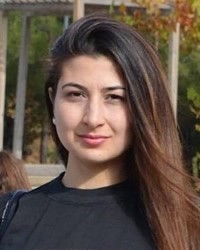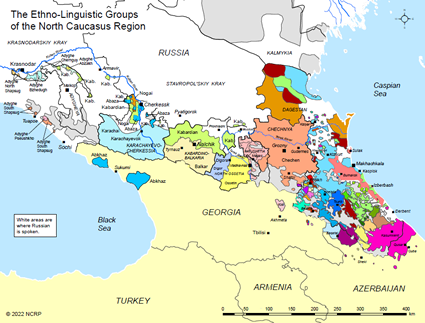The Meskhetian Turks originated in Georgia on the border with Turkey. They are named after a province called Meskheti. Turkic tribes have lived in Meskheti for hundreds of years. During the rule of Soviet Dictator Josef Stalin the Meskhetian Turks were spread out throughout Central Asia. The Soviet dictator questioned their loyalty to his regime. Most Meskhetian remain in these Central Asian nations, though some are in Turkey. They once had highly productive farms, but these were lost when they were moved during WWII. They are still feeling the effects from that time. Today they are spread throughout several of the former Soviet republics of Georgia, Kazakhstan, Azerbaijan, Russia, Kyrgyzstan, Uzbekistan, and Ukraine. A small number of them reside in Turkey. Those who were settled in Uzbekistan faced violent persecution in 1989. Many had to once again re-settle in either the United States or Azerbaijan.
Meskhetian Turks often self-identify as "Ahiska Turks".
The Meskhetian Turks highly value social cohesiveness. They are hoping for a cultural rebirth. The Meskhetian feel a strong need to become united with one another, though that is very difficult given the fact they are scattered throughout Central Asia and the USA. The Meskhetian in Central Asia have often been banned from living in cities, and few have ever been part of an intellectual community. This is a rural people known as excellent farmers. Though they are accepted in Azerbaijan, they face a shortage of housing and work. The Meskhetian who have come to the USA have faced huge changes to their traditional lifestyle. They now live in American cities like New York or Los Angeles. The Meskhetian men have taken almost any job that will put food on the table for their families. As they are learning English and becoming accustomed to American ways, the Meskhetian are raising their standard of living and encouraging their children to pursue higher education.
Lack of prayer and lack of obedience to the command of Christ to preach the good news to all creation continue to slow the advance of the gospel among Muslim Meskhetian Turks in Kazakhstan and elsewhere.
The Meskhetian Turks are Sunni Muslims with a small minority of Shia Muslims among them. They perform Muslim rituals, but also have their own pre-Islamic practices which involve superstitions, sorcery and magic. Some wear amulets and talismans which they believe will protect them. The Meskhetian try to obey the teachings of the Koran and the prophet Mohammad. They believe that by following the Five Pillars of Islam that they will attain heaven when they die. However, Allah, the supreme God of the universe, determines who enters paradise. Sunnis pray five times a day facing Mecca. They fast the month of Ramadan. They attend mosque services on Friday. If a Muslim has the means, he or she will make a pilgrimage to Mecca once in his or her lifetime. Muslims are also prohibited from drinking alcohol, eating pork, gambling, stealing, using deceit, and slandering. The two main holidays for Sunni Muslims are Eid al Fitr, the breaking of the monthly fast and Eid al Adha, the celebration of Abraham's willingness to sacrifice his son to Allah. There are currently no known believers in Christ among the Meskhetian.
The Meskhetian in the USA need help getting their physical needs met. They must learn English and new job skills. Their children must adapt to American schools. Most of all the Meskhetian must hear and respond to the gospel of Isa or Jesus. He much more that an Islamic prophet. He is the Savior and Lord of the Meskhetian.
Pray that God would give new spiritual awareness to the Meskhetian Turks in all of the places they call home. Pray that new relationships will begin between them and God's people. Pray that churches and agencies will be intentional about reaching Meskhetian Turks in the USA for Christ. Pray for a Disciple Making Movement among the Meskhetian Turks in the USA in this decade.
Scripture Prayers for the Turk, Meskhetian in United States.
https://en.wikipedia.org/wiki/Meskhetian_Turks
| Profile Source: Joshua Project |
| Other PDF Profile |











